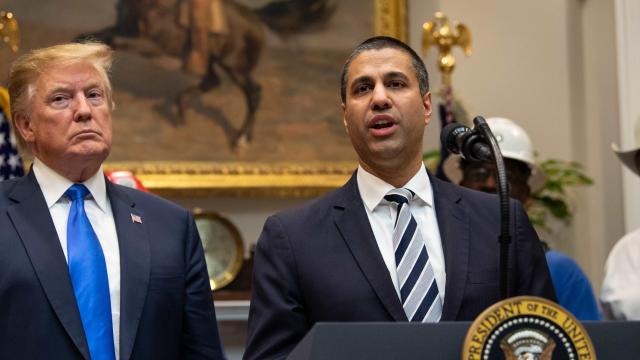After years of so-called “upgrades” that have failed to allay oversight lawmakers’ concerns about the integrity of its public comment system, the Federal Communications Commission in the U.S. has apparently decided to scrap and replace the system entirely, multiple sources told Gizmodo.
The Electronic Comment Filing System (ECFS), first launched in 1998, allows anyone to contribute input about proposed FCC rules when subject to its notice-and-comment rulemaking process. Originally, the ECFS was used primarily by industry stakeholders and telecom attorneys trying to sway FCC policymakers via written legal argument. More recently, the public at large has become aware of the system through the massive grassroots campaigns surrounding the FCC’s net neutrality proceedings.
Leaked to Gizmodo, an email by an FCC official dated this week encourages those “who comment frequently at the FCC” to attend roundtable discussions held on Tuesday and Wednesday this week regarding the creation of the new system, according to the email. Two sources familiar with internal FCC correspondence regarding the ECFS confirmed its authenticity with Gizmodo. The email reads, in part:
The Federal Communications Commission (Commission) is going to replace our Electronic Comment Filing System (ECFS) and we need your help on how to better serve the public. ECFS was originally launched in 1998 as a mechanism to allow electronic submission and query of rulemakings before the Commission. Today, ECFS also serves as the repository for official records in the Commission’s docketed proceedings from 1992 to the present and enables the public to retrieve any document in the system. While ECFS has been upgraded in past years, the Commission now plans to replace the current system with a new system that will render it more user-friendly and efficient as it continues to fulfil its role in receiving electronic submissions and making them available to the public.
As part of the Discovery Phase for the new system, we invite you to a roundtable discussion to talk about your use of ECFS and to identify additional features or changes that would improve the system and your use of it. So far, we have developed initial requirements on the Commission’s core internal functions, and in areas such as: Authentication and Roles, filing Confidential and Non-Public documents, Reporting and Analytics, and Security. We are now seeking input from external stakeholders to identify improvements aimed at enhancing the ability of users to submit and retrieve comments and other documents, including applications and non-docketed filings. In addition to feedback on capabilities of the current system, we welcome information relevant to future potential usage of the system. Roundtable participants are also encouraged to include examples of current effective practices or methods for electronic filing and search.
The email further instructed those with an interest in attending the meeting to contact an employee with the FCC’s Consumer Affairs and Outreach Division, who did not respond to Gizmodo’s request for comment. Likewise, FCC Chairman Ajit Pai did not respond.
The ECFS, despite its seemingly mundane purpose, has been plagued by controversy in recent years: Today, anyone can find in its database comments submitted using Americans’ stolen identities. By some estimates, millions of people have had comments under their names submitted to the ECFS without their consent. The FCC has so far refused to delete the fake comments, even when urged to do so by individuals who claim their identities were stolen, many of whom also say they disagree with the political statements ascribed to them.
“It’s been two years since the FCC’s comment system was flooded with fraud,” FCC Commissioner Jessica Rosenworcel said. “Our record included millions of stolen identities, filings from Russian email addresses, and all manner of fake stuff.” She added that while news the agency is finally looking to update the system is welcome, the problem is “more fundamental.”
“This is how the public tells Washington what it thinks of its major policy proposals. But for too long the FCC has disregarded the mess it made with the net neutrality proceeding. The agency needs to investigate exactly what happened and identify who caused this fraud so that it never happens again,” Rosenworcel said.
While the ECFS is functional most of the time, it has also crashed repeatedly under heavy traffic loads. During two such incidents, FCC officials fictitious cyberattacks.
An inspector general report about system downtime in 2017 additionally concluded that Pai, the current FCC chair, had provided members of Congress false information about the incident. Pai denied any wrongdoing and placed the blame squarely on his chief information officer who’d departed the agency months earlier.
Ashley Boizelle, deputy general counsel at the FCC, told lawmakers late last month that the agency was continuing to “make improvements” to the ECFS and had considered implementing a CAPTCHA system to distinguish human comment filers from automated submissions, which the FCC currently accepts in bulk in a variety of formats.
“Even more importantly, we have launched a fulsome review to overhaul the system,” Boizelle said. “Across-bureau working group has been tasked with leading this effort. They are now in the process of convening roundtables with various external stakeholders to ensure that the next generation of ECFS is both accessible and secure.”
